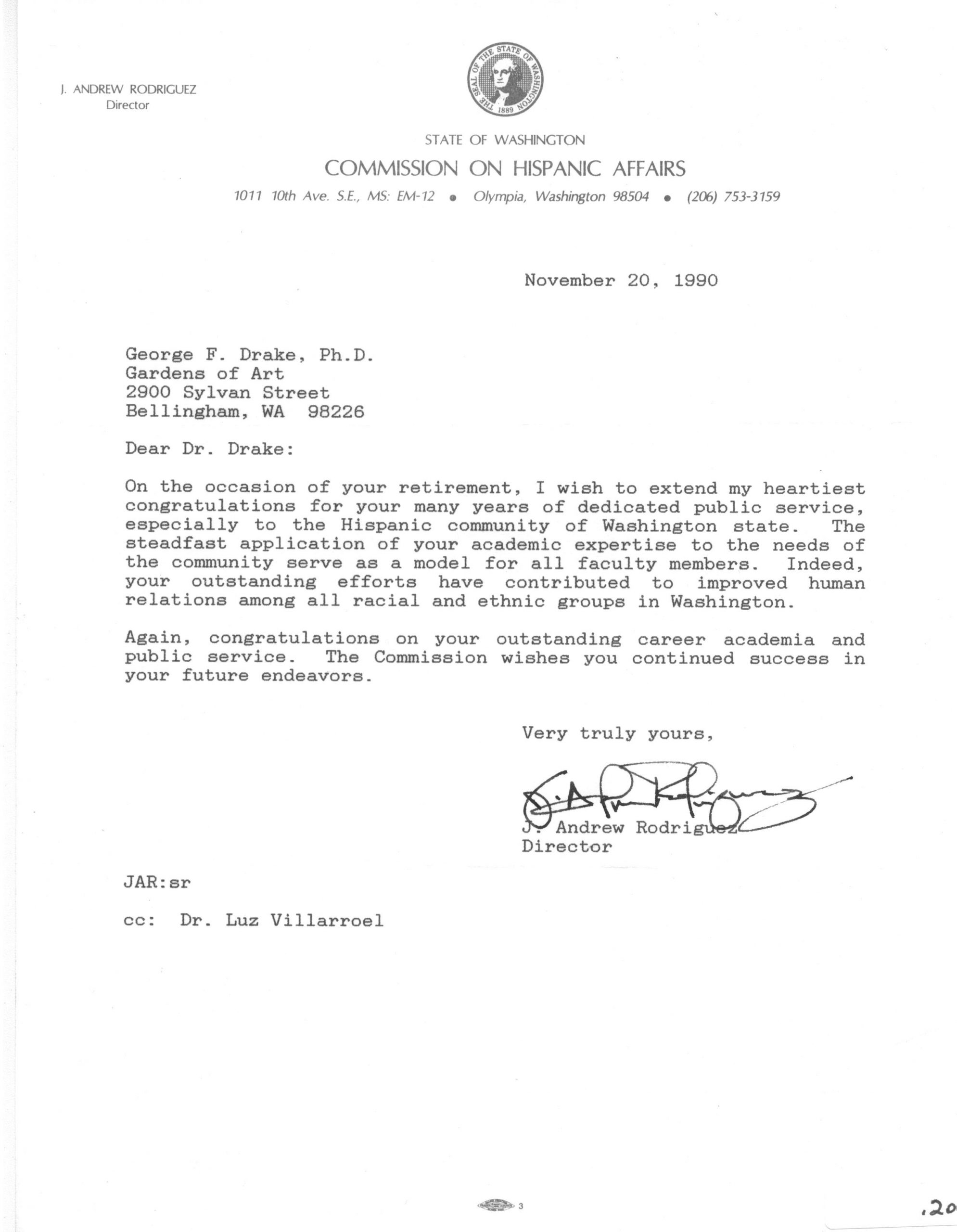Governor’s Committee on Mexican American Affairs
Shortly after my arrival as a new faculty member in the Department of Sociology and Anthropology at Western Washington University I explored what sort of research I could do that would build on my research in Colombia where I studied the power structure of a major Latin American city. I decided that I would try to determine the Anglo perception of the social structure of the Hispanic community in Washington State. To do this I prepared a small questionnaire that asked “If the Governor were to appoint a committee of Hispanics to advise him on the needs of the Hispanic community in Washington State who would you nominate from your community as having the respect and support of that population?”
I sent the questionnaire out to over 1,000 individuals: Mayors, City Councilmen, County Commissioners, School Superintendents, County Health Officers, and all state level elected officials. I had no idea that the Governor Dan Evans was already planning on forming such an advisory committee to be called the “Governor’s Mexican American Advisory Committee.” Within a week I received a call from the Governor’s Office asking that I come to Olympia to meet with his staff and discuss this plan of his. I did so and after meeting the Governor and his staff I was offered a position to serve as a volunteer consultant to the committee which I accepted. I received no pay but all my expenses were reimbursed.
Much of my responsibility was gathering data to document the issues the Hispanic population were facing. I used the computer in the Department of Sociology and Anthropology and their printing equipment to run the data and print the reports. For this I was roundly chewed out by departmental authorities as this had nothing to do with the department and was not deemed a research project. I attended all meetings of the committee, often flying to meetings held in Sunnyside, Yakima, Spokane, etc. in the Governor’s plane along with officials from various state offices.
I found this initiative by Governor Evans a classical example of Marxist conflict theory in action. Evans was creating a pressure group of non-holders of power that could confront the holders of power in state government. He was making a ‘manifest community’ out of a ‘latent community.’ He was giving voice to a population that was not organized at the state level. I loved it and was proud to be a part of it.
I received a phone call from a newly arrived Hispanic professor at Washington State University in Spokane wanting to know more about the committee and asking how he could be of assistance. I responded that he could take my place as consultant and that week I resigned. No need for a ‘gavacho’ to staff the committee when a fully qualified Hispanic was available.
About 40 years later, as member of the Whatcom Hispanic Organization (WHO), I received a notice that the Washington State Hispanic Commission (no longer the ‘Mexican American Advisory Committee’) would be meeting at Western Washington University and that members of WHO were invited to a reception at the university to welcome the Commission to Western. I went. It was an elegant affair.
Preceding her welcoming address WWU President Karen Morse introduced the WWU officials present as well as the current and retired faculty present, all except me. After her “pretty words” of welcome she said “Well, let us get on with the reception.” I immediately said, “Madam President may I say a few words?” at which point Dr. Morse introduced me to the assembly. I then briefly related that I was one of the ‘founders’ of the Governor’s Mexican American Advisory Committee. I expressed delight that it was now the Washington State Hispanic Commission and a viable force in addressing the needs of the Hispanic population of the state. “At the beginning, though,” I stated, “the university did not look favorably on my participation in the development of the Mexican American Advisory Committee. They objected to my using campus resources to process the data I was gathering or using campus paper and office machines for printing the early reports. Obviously things have changed for the better. I am glad that I accidently found out about this gathering so I, too, could welcome you to Bellingham.”
Having said my piece I got a glass of wine and a bit of food and circulated among the crowd.
